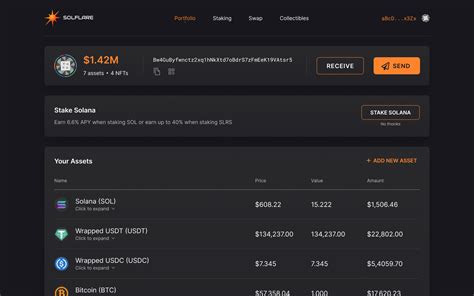Importing of Python modules on Solana’s playground
When using the SeaHorsse testing system for Solana’s intellectual contracts, you are probably familiar with modules and functions to import tasks such as data manipulation, emissions and more. However, when it comes to Python modules, everything can become a bit difficult due to language insulation from the Solana Blockchain environment.
Problem: Insulation between Solana and python
Solana is distributed by a stateless Blockchain citizenship, which means that its nodes (computers that control the Solana Consensus algorithm) have no direct access to external systems such as your local machine. This insulation is necessary for security reasons, as malicious characters would not be able to communicate with external systems from Solan.
However, it also limits your ability to import python modules directly into your intellectual contract code. Instead, you need to use Solana Web3 API and SeaHorsse to achieve the right functionality.
To solve the error “Unable to Find”
When you are confronted with mistakes like “Building … Error: Unable to Find …”, which means that Solana can’t find a python module or feature you are trying to import. This can happen for several reasons:
- Package Addiction : Your Python Package may have addictions on other modules that are not installed on your computer.
- Library Import : Perhaps you are using imports of a particular library, such as “importing time” rather than from DateTime import Datetime.
- There is no clear module import

: if you import a specific feature or class directly from the Python module without using the Web3 API Import.
How to import modules on Solana’s playground
Follow the following steps to overcome these challenges:
Step 1: Install the required packages
Make sure your local computer has the necessary addictions. You can use PIP (Python package installation program) to install missing modules:
`Bash
PIP installation -R Requirements.txt
Change Remess.txt with your project addictions
`
Step 2: Use Solana Web3 API
To achieve the necessary features and classes from Python modules, you need to import them using Web3 API. Seahorse provides an object of Web3 to communicate with Solana nodes.
Here’s an example:
`Python
Import Web3
Change ‘ with local node URL
W3 = Web3.web3 (Web3htpclient (URL = “
`
Step 3: Import specific features or classes
When you have an object at Web3, you can import specific features or classes:
`Python
from Solana.Publuckey Import Public
Get Solana Public Key (you have to generate it)
PUB_KEY = W3.eth.account.Generate_keys (). public_key
`
Step 4: Use Web3 API in your intellectual contract code
Now that you have access to the features and classes you need, you can use them in your intellectual contract code:
`Python
Def Get_time ():
return DATTIME.NOW ()
Def Generate_random_number ():
return by accident.UFIFORM (0, 100)
`
Remember that these examples are simplified and may not be removed from all the edges. For more information on the use of Web3 API in your intellectual contract code, you should consult Solana documents.
Conclusion
Although importing Python modules can be a bit complicated when working with Solana, it is not impossible. By performing these actions and understanding the restrictions on Solana insulation, you will be able to write effective and effective intellectual contracts that will use the power of Seahorse and Web3 API. Happy coding!
